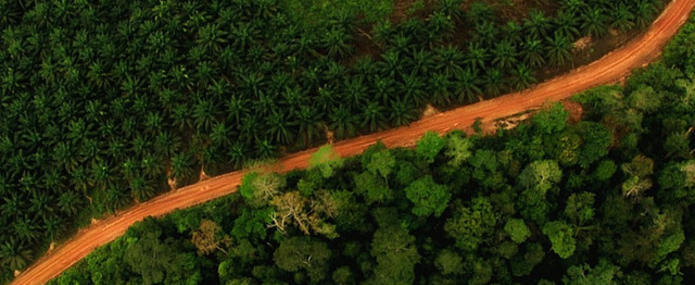Palm oil production has demonstrable impacts in terms of environmental and social sustainability. The responsibility for these impacts lies as much with producer countries, especially in Southeast Asia, as with consumer countries, particularly in Europe, at the different levels of the associated value chain. How is this value chain organised? What are the power relations involved? What are the consequences in terms of governance and value distribution? An analysis of these questions is the core of a research project led by IDDRI focusing on the sustainability of a number of commodities that are widely traded throughout the world.
Over the last 12 months, French and European Members of Parliament have in turn addressed the issues linked to the social and environmental impacts of palm oil production. The amount of land dedicated to this crop has grown continuously over the last 20 years, driven by growing demand from Europe, India and Indonesia. Palm oil is now found in almost one in two consumer goods, and its use in biofuel production is steadily increasing.
Central to the initiatives undertaken by French and European Members of Parliament—a plan to tax imports of “unsustainable” oils in France that was not carried through, a European Parliament resolution voted yesterday, highlighting in particular the responsibility of European consumption in tropical deforestation—is a simple observation: the intensification of global trade in commodities, especially in the agri-food sector, now means that collective responsibility must be taken for the sustainability of upstream modes of production. As regards deforestation, for example, research financed by the European Commission has shown that European consumption was globally responsible for more than a third of deforestation associated with global trade in agricultural commodities between 1990 and 2010.
It was in this context that, in late 2016, IDDRI launched an intervention programme focusing on the impact of these supply chains on the sustainability of upstream modes of production. Its goal is simple: based on an in-depth understanding of the organisation of these supply chains and of their territorial integration, the aim is to identify which actions (public or private, at the territorial or supply chain level) are/would be the most likely to make production more sustainable (further reading on this topic: “Towards a (more) sustainable palm oil: what role for importing countries?”). This approach is based in particular on an analysis of the governance of these supply chains, in other words the identification of power relations, whether contractual or not, which should explain the decision-making processes and the distribution of value added along the supply chain.
The research conducted on palm oil over the last year has consolidated this approach. The joint analysis of competitive dynamics between traders and of interdependencies between the latter and their customers in the European agri-food industry has, for example, shown that almost 90% of the palm oil volumes traded on global markets today are covered by “zero deforestation” commitments. However, a similar analysis, dealing this time with the relationships between traders and their suppliers—large industrial plantation operators in Indonesia and Malaysia—also sheds light on the reasons why it is currently difficult to translate these commitments into specific changes to the operational practices of upstream actors.
Based on these elements, IDDRI’s next initiative will focus on identifying the types of public policies that would make it possible to transform the private commitments made downstream and midway along the supply chain into specific practice changes upstream, through an analysis of the negotiation processes between buyers and suppliers at all levels of the supply chain. IDDRI will work on the case of palm oil, as well as on three other agricultural commodities that are widely consumed and whose modes of production have significant impacts on the three pillars of sustainable development: cocoa, tuna and soybean.
>> Further reading: an op-ed by Pierre-Marie Aubert published on April 4, 2017 by The Conversation [in French]: « Pour une huile de palme durable, soutenir les petits producteurs et encadrer les grandes plantations »


